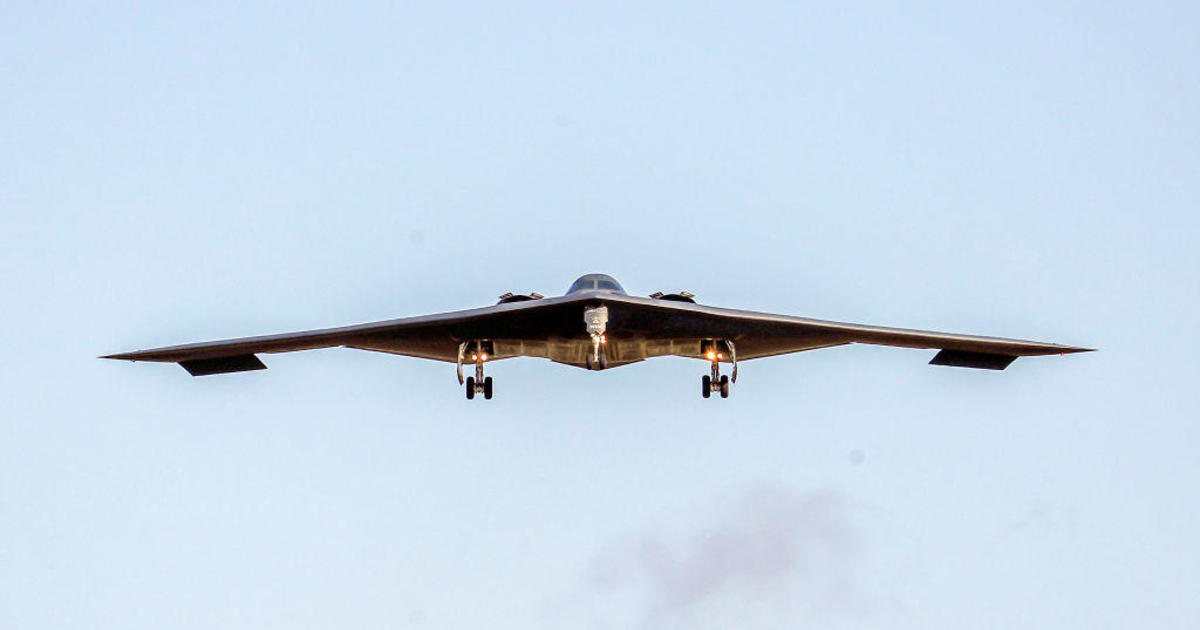The United States military recently carried out precision airstrikes against Houthi weapon storage facilities in Yemen. This action, authorized by President Biden and executed by U.S. Air Force B-2 stealth bombers, targeted five underground locations believed to contain weapons components used in attacks on civilian and military vessels in the region. The strikes underscore the U.S. commitment to deterring Houthi aggression and safeguarding international maritime commerce, which has been significantly disrupted by the Houthis’ escalating attacks. This action is the latest in a series of retaliatory strikes against the Iran-backed group, highlighting a significant escalation in the ongoing conflict. The decision to utilize B-2 bombers demonstrates the U.S.’s resolve and capability to respond decisively to threats to its interests and partners. The following sections will delve deeper into the context of the strikes, the implications for regional stability, and the ongoing challenges presented by Houthi actions.
U.S. Airstrikes on Houthi Weapons Facilities in Yemen
Justification for the Strikes
The Pentagon cited the Houthis’ persistent attacks on commercial and military vessels in the Red Sea, Bab Al-Mandeb Strait, and Gulf of Aden as the primary justification for the airstrikes. These attacks, which have spanned over a year, have caused significant disruptions to international shipping lanes, posed environmental risks, and directly endangered civilian and military lives. The U.S. government considers these actions to be reckless, unlawful, and a direct threat to regional and global stability. The specific targeting of underground facilities aimed to neutralize the capability of the Houthis to manufacture and launch weapons targeting maritime traffic. The Pentagon emphasized that the strikes were precision strikes aimed to minimize collateral damage and civilian casualties, reflecting a commitment to minimizing civilian harm, but acknowledging that precision strikes can still cause civilian casualties in areas with limited infrastructure or access.
Strategic Implications of the Airstrikes
The use of B-2 stealth bombers showcases a significant display of American military might and a strategic decision to demonstrate the U.S.’s global reach and commitment to its allies. This action serves as a deterrent to future attacks by Houthi rebels and underscores the gravity of their actions in the eyes of the U.S. The selection of B-2 bombers for the mission, typically reserved for high-value targets and operations requiring stealth, highlights the importance that the United States attaches to countering this growing threat. Beyond demonstrating capability, it aimed to send a clear message to the Houthis and other regional actors about the cost of challenging U.S. interests. The airstrikes are expected to lead to further diplomatic discussions between various regional and international players as well.
The Escalating Houthi Conflict and Regional Instability
Houthi Activities and Regional Impacts
The Houthis’ increasingly frequent and sophisticated attacks on vessels have caused significant supply chain disruptions. This impacts the global economy, resulting in price increases for goods, shortages of materials, and uncertainty in the global markets. These actions constitute acts of aggression not only against shipping routes but also impact numerous civilians working on shipping vessels. Additionally, the destruction of commercial vessels threatens environmental sustainability as the leaking of oil or chemicals from such ships contaminates the marine environment.
International Responses and Concerns
The recent airstrikes and the persistent attacks by the Houthis are cause for concern from many international partners and bodies who fear an expansion of hostilities and a further escalation in an already tense region. The actions of both sides risk destabilizing the region, prompting many calls for diplomatic resolutions or for the implementation of international ceasefires to protect innocent people. Several nations have voiced concerns regarding the escalating conflict. These organizations are emphasizing the urgent need for humanitarian assistance to aid Yemen and its people who have been displaced or have had to deal with the consequences of this prolonged conflict.
The Broader Context of U.S. Involvement in Yemen
Previous U.S. Actions in Yemen
The U.S. has been involved in military operations in Yemen in various capacities for many years. This includes not only retaliatory airstrikes but also providing intelligence and military training to counter-Houthi forces within the country. The decision to designate the Houthis as a Specially Designated Global Terrorist Organization underscores the significant threat the group represents, and is connected to the U.S.’ continued involvement in Yemen. The decision demonstrates a sustained determination by the U.S. to confront the violent extremism fueled by the conflict, highlighting ongoing tensions and complex issues present in the region.
The Role of International Diplomacy
While military actions have been taken, international diplomacy plays an equally significant role in resolving the Yemen conflict. Many countries and international organizations are actively involved in mediating negotiations and providing humanitarian aid. The effectiveness of diplomatic solutions is severely hampered by the continuous escalation of violence and conflicts, which ultimately makes any lasting, meaningful progress almost impossible without a commitment by all parties to resolving this issue peacefully.
Takeaway Points:
- The U.S. airstrikes against Houthi weapons facilities represent a significant escalation in the ongoing conflict in Yemen.
- The strikes were justified by the U.S. government as a response to repeated attacks on commercial and military vessels.
- The use of B-2 stealth bombers demonstrates the U.S.’s commitment to countering Houthi aggression and protecting its interests.
- The conflict in Yemen continues to create regional instability and poses significant challenges to global shipping and security.
- A concerted effort towards peaceful resolution and humanitarian aid remains crucial to resolve the multifaceted crises plaguing Yemen.









